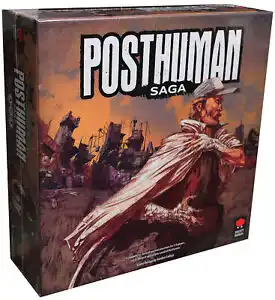The Magnificent is a tightly designed Eurogame from the creators of Santa Maria set in a mystical world beautifully illustrated by French artist Martin Mottet.
In the game, players are competing to attract the largest audiences to their shows, featuring magnificent performers. In the process, you must expand your camp by placing Tetris-style tiles on your player board, gather elements needed for the shows, and set up performances in your tents.
On your turn, you take one die from the supply. The value of the chosen die is your strength. Add to this the value of all dice of the same color that you have already collected, then use this strength to carry out one of three main actions: build, travel or perform. The more strength you have, the better the action will be, but at the end of the round, you must pay — in coins — the total of your highest-valued dice color. Thus, taking dice of the same color makes for better actions, but will cost more coins.
After each player has taken four turns, the round ends. Each player must discard one of their ringmaster cards and score points according to its requirements. After three rounds, the game ends, and the player who has collected the most points wins.
In more detail, players start the game with four ringmaster cards and a unique trainer tile. Each ringmaster card provides a special ability (which is triggered when you place a die on it) and a unique end-of-round scoring opportunity. When you choose a ringmaster card to discard and score at the end of the round, you must therefore also take into consideration which special abilities you want to keep.
In addition to your main action, you may use trainers on your personal unique trainer tiles or on common trainer spaces on the game board for various benefits.
At the end of each round, in order of the players’ highest-ranked performances, players choose a new ringmaster card and a trainer tile, providing new abilities and scoring opportunities for the next round.










